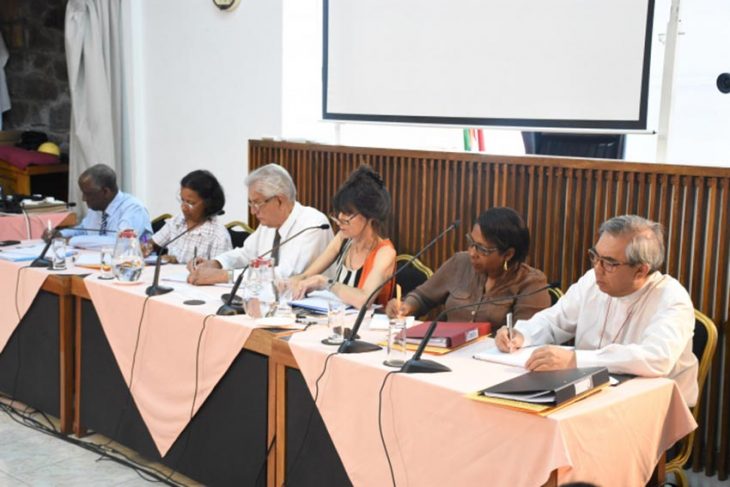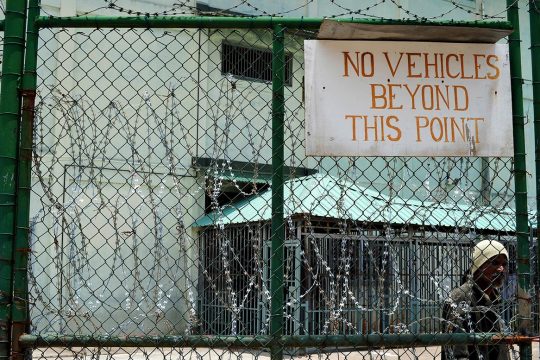“Throughout its operations, the TRNUC has been grossly under-resourced and staffed with just some 16 local staff and six service providers. As it moves towards the completion of its activities on 9 August 2022, it is struggling to make determinations on some 372 complaints, prepare its Final Report, deal with potential amnesty petitions and finalize its reparations policy in close consultation with its complainants,” says Gabrielle McIntyre, the Australian lawyer at the head of the Commission formed in 2019.
The last two cases were heard on 7 April. Since it began holding hearings, the Commission has heard 361 of its admissible 374 complaints on human rights violations committed during the period of one-party rule (1977-1992). Despite having gone through the numerous cases, there are 11 remaining ones that have been deemed dormant “due to a lack of responsiveness on the part of those complainants to Commission attempts to schedule them for hearing”, McIntyre explains to Justice Info.
After the victory of the opposition coalition in the September 2016 parliamentary elections, which was the first political change of power in the Seychelles in 40 years, the Truth, Reconciliation and National Unity Commission (TRNUC) was conceived as a vehicle that would bring clarity on events in the Indian Ocean Island state after the coup that took place on June 5, 1977.
On that date, France Albert Rene overthrew James R. Mancham as President. Since then, many have come forward to reveal human rights abuses resulting from the coup, such as disappearances of citizens, illegal seizures of land and forced exile to countries such as the United Kingdom, Australia and Canada.
266 days of hearing
However, three years later, the Commission still has to convince the people of the Seychelles on its approach, says Lucianne Sophola, the head of the Association for Rights, Information and Democracy (ARID). “After all those interviews they must have an idea or recommendation on what has to be done,” she thinks. The TRNUC still has to clarify, for instance, if the “perpetrators will pay for any damages or if they will be prosecuted”.
Many of the complainants who have brought their cases forward, have claimed that they only wanted to learn the truth of what really happened from the day of the coup to later victimisation claims, Sophola recalls. However, there is uncertainty as to whether the “victims, will get a public apology or the deceased a proper burial”.
The issue of compensation for those who have undergone various forms of victimisation, is yet to clarify too. ARID’s representative says that although the TRNUC’s mandate ends in August, “it seems they are still in the consultation phase, so how we can we judge their achievements if they are still talking to people?”
In total, the Commission has held 266 days of hearing and heard the evidence of over 1,200 complainants, witnesses and suspects. Of those 361 complaints heard, the Commission has finally determined 46, and another 21 are under deliberation, while a further 30 are in preparation. That leaves just under 200 to be commenced.
“The work load is onerous. Given the constraints of both time and resources, not all complaints of the Commission will be determined with the detail the Commission would have liked,” McIntyre says. “In that regard, the Commission has focused its reasoned determinations for its most serious cases and some of those decisions run to 150 pages long. Other complaints, particularly those which fall into a pattern of complaints, will be determined without setting out in full the reasoning process of the Commission.”
“In addition, the Commission is working with individual victims and individual perpetrators toward reconciliation and in preparation for potential amnesty proceedings,” said McIntyre.
Heated debate on reparation policy
But the latest development with the TRNUC’s work, which has caused an uproar, is the creation of a Focus Group on Reparations to assist in the development of its reparations policy. Following the victim’s plenary meeting held by the Commission on 26 April, on Mahé, the main island of the Seychelles, many citizens took to social media to decry demands made. “Where will the country get SCR 15-10 million to pay the over 100 victims owed compensation as a result of the atrocities they suffered following the coup?” wondered Sophola.
“The Commission has to be realistic about what can be achieved in these final three months of operations but it is doing its utmost to ensure that all complaints filed have a determination made and that its Final Report is reflective of its record of findings. It is also doing its utmost to ensure the due process rights of those found to be perpetrators of human rights violations are fully respected through the serving of perpetrator status notifications and explanation of the amnesty process,” says McIntyre.
“The magnitude of the obstacles and problems faced by the Commission will be reported in its Final Report,” she continues, recalling that she previously made requests to the Ministry of Finance for additional budget so the Commission could better carry out its mandate – before the country’s annual budget was approved by the National Assembly. The government rejected this request due to the economic difficulties it had been facing as a result of Covid-19 pandemic.
“Given its workload and constraints the Commission’s Final Report will not be as comprehensive as it may have wished,” warns McIntyre.






